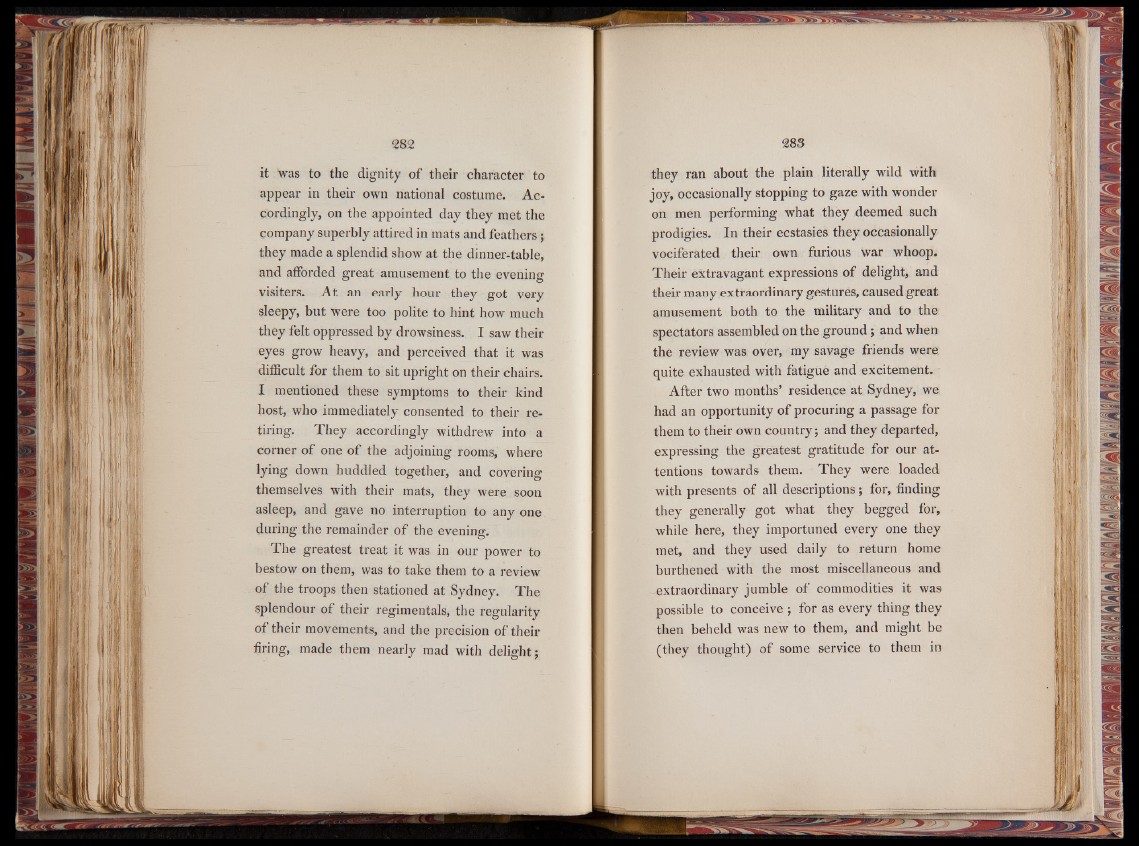
it was to the dignity of their character to
appear in their own national costume. Accordingly,
on the appointed day they met the
company superbly attired in mats and feathers;
they made a splendid show at the dinner-table,
and afforded great amusement to the evening
visiters. At an early hour they got very
sleepy, but were too polite to hint how much
they felt oppressed by drowsiness. I saw their
eyes grow heavy, and perceived that it was
difficult for them to sit upright on their chairs.
I mentioned these symptoms to their kind
host, who immediately consented to their retiring.
They accordingly withdrew into a
corner of one of the adjoining rooms, where
lying down huddled together, and covering
themselves with their mats, they were soon
asleep, and gave no interruption to any one
during the remainder of the evening.
The greatest treat it was in our power to
bestow on them, was to take them to a review
of the troops then stationed at Sydney. The
splendour of their regimentals, the regularity
of their movements, and the precision of their
firing, made them nearly mad with delight;
they ran about the plain literally wild with
joy, occasionally stopping to gaze with wonder
on men performing what they deemed such
prodigies. In their ecstasies they occasionally
vociferated their own furious war whoop.
Their extravagant expressions of delight, and
their many extraordinary gestures, caused great
amusement both to the military and to the
spectators assembled on the ground; and when
the review was over, my savage friends were
quite exhausted with fatigue and excitement.
After two months’ residence at Sydney, we
had an opportunity of procuring a passage for
them to their own country; and they departed,
expressing the greatest gratitude for our attentions
towards them. They were loaded
with presents of all descriptions; for, finding
they generally got what they begged for,
while here, they importuned every one they
met, and they used daily to return home
burthened with the most miscellaneous and
extraordinary jumble of commodities it was
possible to conceive ; for as every thing they
then beheld was new to them, and might be
(they thought) of some service to them in